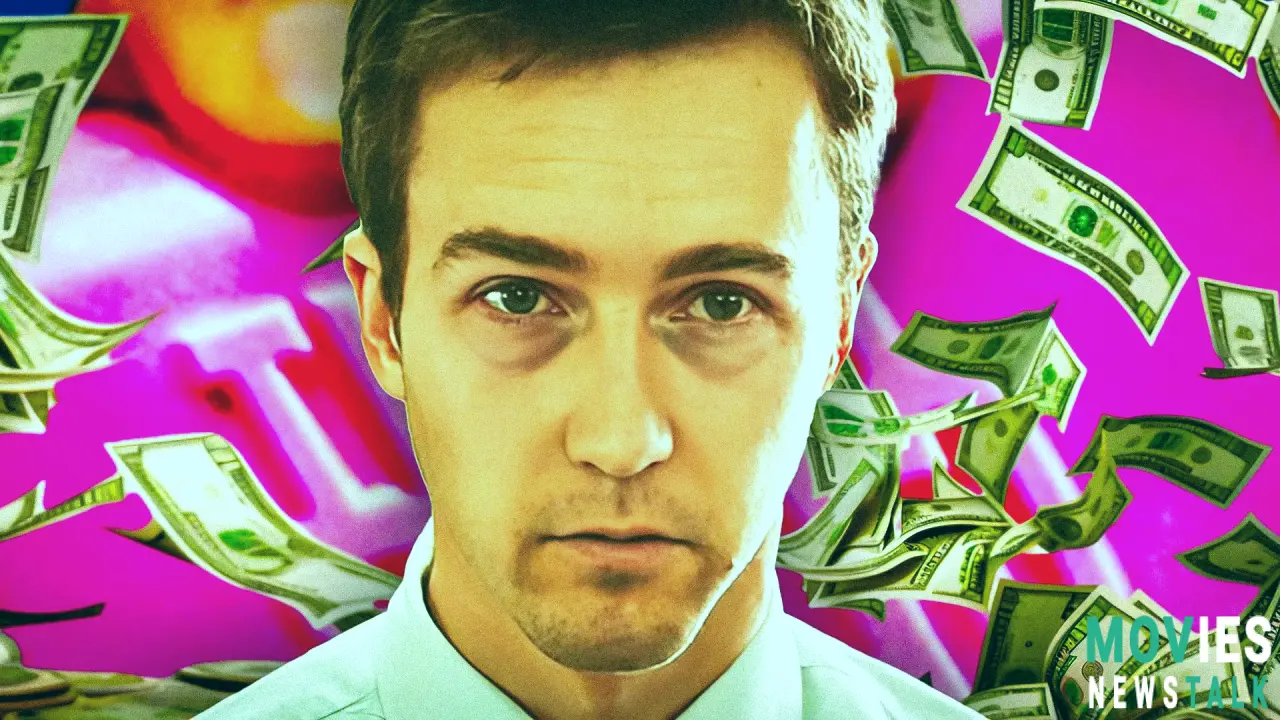Fight Club: A Box Office Underdog That Became a Cult Classic
Who doesn't love a good fistfight? It's hard to imagine, especially if you're a fan of the dark, edgy thriller Fight Club. This cult classic, which features Brad Pitt, Edward Norton, and Helena Bonham Carter, definitely didn't start out as a box office giant. This movie's story is as exciting as one of the underground fight scenes. Directed by the awesome David Fincher, Fight Club went from a kinda questionable movie to one of those iconic movies. Even The New York Times hailed Fight Club as "the defining cult movie of our time".
Now, I wouldn't say it was totally a flop, but the studio heads and everyone involved? They weren't entirely pleased. We're talking about a $65 million budget, that was for the movie's production, plus a whole heaping amount for advertising - that stuff can break the bank! But guess what? Even though critics were really digging Fight Club, the whole movie marketing team felt hesitant to make a huge fuss about the movie, especially given the movie’s message.
Fight Club's Box Office Battle
The movie itself got pretty great reviews. But did the people actually go watch it? Sadly, not as many as the folks making Fight Club hoped for. And that's a major bummer! For most films, making at least two times your budget is good, but for Fight Club, it barely crossed the $100 million mark, while being produced for $65 million.
Why the low turnout? It all came down to the themes the movie was pushing! They really dug at modern society and poked fun at corporate America, capitalism, and what it means to be a man. So for a lot of the studios involved, they really didn’t want to put a ton of effort into pushing a message like that, you know what I mean? But people started buying it on DVD - then all bets were off! That’s where things really took off and helped Fight Club to grow into what it is now!
A Little Perspective
We have to adjust that box office score a little because it's 1999! You’ve got to look at how much those $100 million could be in today’s money - because of inflation, it's worth a lot more today. In fact, you've gotta multiply it by a bit more than 1.8 to see the full effect. That's way more than a $100 million budget, more like almost 200 million! Pretty incredible.
There's a huge difference in movie money then and now. A lot of the huge box office numbers come from movies with huge production costs (think animation and huge visual effects). But remember, Fight Club’s production was about the message. Even with the amazing special effects, they decided to keep the production down for a more realistic approach, and it kinda makes sense, since that's how the story plays out! They’re pushing the idea that materialism doesn't always bring you happiness, especially those who are struggling, right?
The Studio Wasn't Totally Into "Fight Club"
So what did happen to make Fight Club an underdog success story? Well, a lot of the studio bigwigs thought that Fight Club was kinda too edgy. That it’s themes weren't exactly in line with those clean and easy "go see the movie with the whole family" kind of stories, but the movie actually had some real weight, tackling social issues that are relevant even now. The producers knew it could be controversial because of those sharp, anti-capitalism ideas, which are really hard to tackle for Hollywood. It would mean that the people in charge were, on some level, pushing back on those societal norms that make big profits, but not really challenging anything at the same time.
They weren't totally sold on Fight Club and definitely didn’t spend a lot on advertising. It also had a hard rating - meaning not everyone could watch it, especially teens - so you have to limit yourself, since teens are always some of those bigger groups of ticket-buyers. That whole vibe was clearly not exactly something that you would just want to bring your kids to.
From a “What-If” Movie to Cult Classic
Remember, even with all the obstacles, the studios probably didn't know they had something truly special on their hands, something people could appreciate even years down the road. They were caught in that Hollywood mode where the goal is a bunch of movie tickets and loads of cash, which is something the characters in Fight Club are trying to get away from. Maybe if they took a moment to consider why those box office numbers weren't there in the first place, they could’ve gotten a sense of what it means to live in that world they were mocking! I mean, it's a very relevant commentary and theme, even today!
Then DVDs came along, which brought the whole “Fight Club” thing to everyone, allowing them to really dive into the crazy themes and complex twists and turns in the storyline. The whole experience felt more private and intimate! From that point, “Fight Club” went from a kinda shaky launch into one of those films you’ll see someone quoting at the bar, because that’s what happens with great movies!

